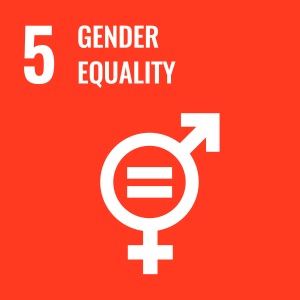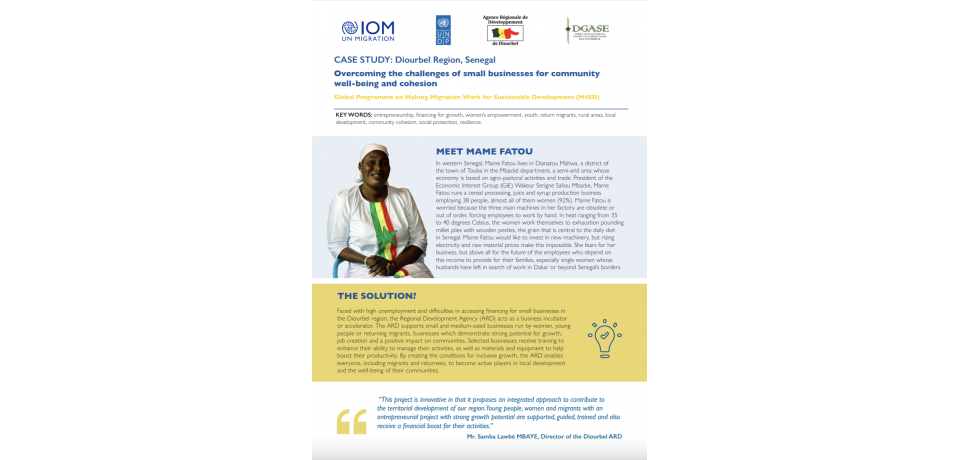CASE STUDY: Overcoming the Challenges of Small Businesses for Community Well-being and Cohesion
Related Sustainable Development Goals and Global Compact for Migration Objectives
Mame Fatou lives in Dianatou Mahwa in the Diourbel region of Senegal, a rural area with an economy based on agriculture, pastoral activities, and trade. She is president of the Economic Interest Group (EIG) Wakeu Serigne Saliou Mbacke, and runs a cereal processing, juice and syrup production business employing 38 people, most of whom are women. Their main equipment is old or broken, which is forcing the women to work by hand in heat ranging from 35 to 40 degrees Celsius. The rising electricity and raw material prices make it impossible to buy new equipment on their own. She fears for her employees who depend on this income to provide for their families, especially single women whose husbands have left overseas in search of work opportunities.
To support people like Mame Fatou and her employees, the Regional Development Agency (ARD) of Diourbel acts as a business incubator or accelerator. The ARD supports businesses run by women, young people or returning migrants, which demonstrate strong potential both for growth by providing training, materials and equipment.
How can national and local authorities work hand-in-hand with small- and medium-sized enterprises to promote inclusive growth? What is needed to empower women, young people and returning migrants to both improve their own livelihoods and skills but also to become active players in local development and the wellbeing of their communities?

Read the case study (English and French) to find out how and read 4 tips thatwe learned from putting this approach into practice, including: combining training and financial support for businesses to maximize impact; capitalizing on knowledge and best practices from past projects; supporting women entrepreneurs in order to foster community cohesion; and inspiring knowledge sharing and networking between community members.
These activities are carried out through the IOM-UNDP Global Joint Programme Making Migration Work for Sustainable Development (M4SD) which supports Senegalese local and national governments, the private sector and community organizations to establish community-led solutions that empower migrants and create inclusive opportunities for all. By supporting business owners and employers, partners can expand sustainable growth and livelihoods in local villages (Sustainable Development Goals 2, 4, 5, 8, 9, 10, 12 and 17).
Learn more about our work in Senegal.
